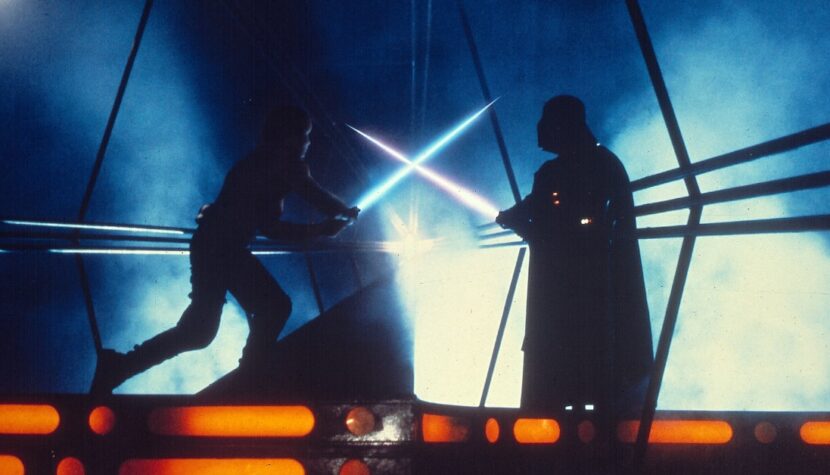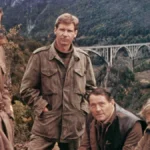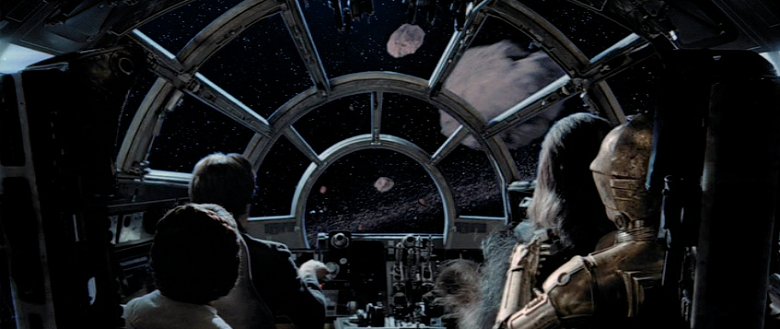THE EMPIRE STRIKES BACK. The BEST episode of Star Wars

In 2020, forty years have passed since the release of the chronologically second part of the Star Wars franchise. Fourty years! And how much has changed since then, how differently we view science fiction cinema, how we try to exploit its successive levels, draw on new patterns. We try, we shoot, with better or worse results; on the screens we see both gems and financial flops. There is cinema that plays with convention, as well as serious cinema that draws on the patterns set out by, for example, Frank Herbert or Stanislaw Lem himself. Life goes on, film production is not going to (and will not) slow down, and the George Lucas universe is still going strong. Series, animations, books are coming out, the world presented itself goes beyond any boundaries that the first productions presented to us. Creative creators bend over backwards to be able to successfully confront the expectations of ungrateful fans, while the greatest enthusiasts are still able to use disgustingly crude vocabulary to this day. And yet the fifth part was based on going beyond the horizons of the viewer himself, betting on minimalism in this sky-high universe, duplicating this chivalric fairy-tale, as well as on neat plot tricks. And it worked! The element of originality sealed the success of Star Wars once and for all.
When writing this text, I intend to base my assumptions on an outrageous quote (as usual – extremely original) by Polish critic Zygmunt Kaluzynski himself, a man who alternately loved and hated the science fiction genre. About the fifth part (although he appreciated the original trilogy, he recommended it!) he spoke in a quite mocking and, I think, a bit unfair way, so let’s see if we can try to enter into a polemic with his approach to the galactic production itself, but also try to expand its explication of film content. “For me, the most successful episode of Star Wars was The Empire Strikes Back, but also when Luke Skywalker fights with neon sword against Darth Vader, who for some reason has a cloak to the ground and his head is trapped in a black mask (partly Nazi helmet, partly an electronic device), and the latter suddenly declares to him: “You are my son”, I began to choke with laughter and it spoiled my whole view of the series”; is quite a short, albeit thought-provoking, quote that shows the reviewer’s preconceived approach. Because even though it’s successful, it still smells like crap, that piercing kitsch. So what does it smell like, can it be successful? Can one scene influence the reception of the entire film?
By nature, Kaluzynski was in the habit of looking too excessively for (or complaining about the lack of) the factors that make a given film a reality, allowing it to gain an aura of authenticity; a fairly frequent accusation made by critics and in Polish cinema, I emphasize – not based on galactic turmoil. Mr. Zygmunt Kaluzynski, mentioning neon swords (skillfully avoiding the proper name of the item), asks what it’s all about. Why this pattern of the appearance of the antagonist himself, why “coat to the ground”, why this “head” is “trapped in a black mask”. It demands many answers to questions that at that time (before all these products explaining each of the elements of the entire universe) were not answered. none! What counted for the viewer was the aesthetics, the overtone of how the entire staged mise en scène presents itself on the screen. Lucas’s way was to create something we hadn’t seen before. He created the basis for his own bible, a book expanded today by a multitude of messiahs. Is it something bad? The magic of this world is based on the assumption that if something is in a given form, it is and must remain so. It stays there.
What counts is simplicity, idea, in this case and originality. We don’t question it, but we feel it. Because this is how the world works, this is its assumption, the assumption of the author himself, the creator. Something like religion – we can use it or look for any inaccuracies, the lack of theories explaining all “scenario tricks”. And yet, by the way, Star Wars itself has become a kind of religion; millions pay tribute to them with each new release, and fans still cultivate the memory of everything related to them to this day – through memes, discussions and wondering what if – they made the latest trilogy. It functions as invasively as one of the religions, absorbs man, makes him live with the content resulting from the work. A cosmic masquerade? Probably yes, not entirely useful, not very practical, rather it will not help to find the question about the meaning of life. But it is such a dose of joy that it will allow you to survive. Believe in something, feel it, maybe fall in love. As you can see, this is not much different from the first confession. Each of the mentioned in theory is based on the grateful feeling and polish of the recipient. Apparently in a positive way – and that’s something, a positive value.
Related:
Thus, calling Star Wars “a combination of a cosmic vision with history, adding a legend to a fairy tale, transforming SF into mythology”, Kaluzynski broadens his (and ours) room for interpretative manoeuvre. What is mythology for us if not a collection of legends, stories that may have at least some truth in them, but which above all charm us with their casual narrative. When we read Greek myths, we were interested in all the flaws, but it was not the highlight of the program. The way they told stories, explained human fears, represented certain patterns, behaviors, allowed us to understand the essence of existence – this is why they are deeply rooted in our culture (and pop culture) to this day. So Star Wars itself is a transfer of this meta-narrative into modern language – why couldn’t Vader be Dyzma, who decided at the last minute to redeem his sins? And Han Solo himself, isn’t his lack of faith in the existence of power a bit like the biblical Thomas? Isn’t Ben Kenobi the archetype of the Guardian Angel? When feeling this film, it is even advisable to perceive it as one of the many legends that is designed to be attractive! Because from the historical point of view, religion was always supposed to be attractive, it attracted believers, encouraged them to take advantage of all its advantages; it was the biggest business, which is why, by definition, these illusory narratives were so tempting to the simple people of those eras.
And we, as viewers, also act in the simplest possible way, that’s why it’s so easy to bribe us, we just want (!!!) to receive such phenomenally made script treatments that don’t have to make much sense, but turn the events of the world 180 degrees presented; no one in the cinema hall (then as now) cried with laughter at the iconic line “I am your father”; it was and is such an interesting device that only strengthens our emotional involvement with the film. It is breathtaking to receive this one scenes close to some kind of imagination associated with the ecstasy of sensations. And this is the power of the Star Wars series, this whole envelope is seductive, it can bribe us with its tempting slogans, colors, pure, banal artistry; thanks to this set of individual features, it is not one of the components of the film (a sword light, power, a given planet, character’s clothes, character’s charisma) becomes a recognizable symbol. The whole film is a phallocentric object. An object we want to reach, a world we want to participate in, characters we want to associate with are revealed to us. We feel the desire for the film itself, we strive to see it and we will strive to see it, because it offers something that normal life does not offer us, and what one of the religious guarantors can give us – contact with impossible dreams, with making our fantasies come true, approaching the alternative world .
And Zygmunt Kaluzynski was right when he said that this is the “most successful” episode. Because in a timeless way it allows us to come into contact with fairy tales, with the myth of the fight between good and evil, which is also shown in an extremely human way – when things go wrong, there is always hope for a better tomorrow. If the plot were moved to our home locations, it would suddenly turn out that the story concerns the Sobolewski family, and larger instances would touch on problems related to finances and family animosities. And the sound would stay the same. Because every myth tells something that has been taken from reality at least a little, and then written down, perfected. To make it sound attractive. And then absorb more followers.








